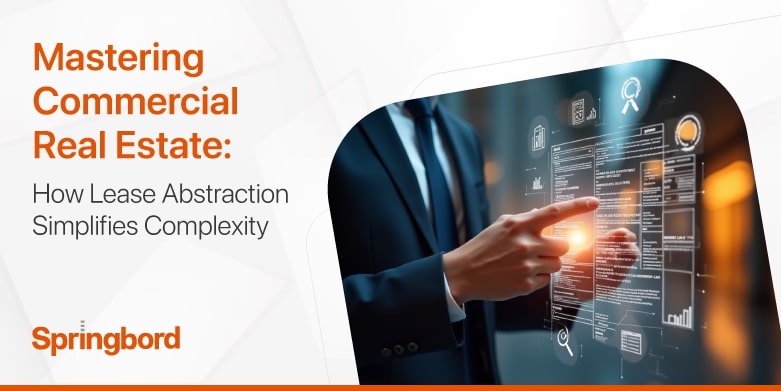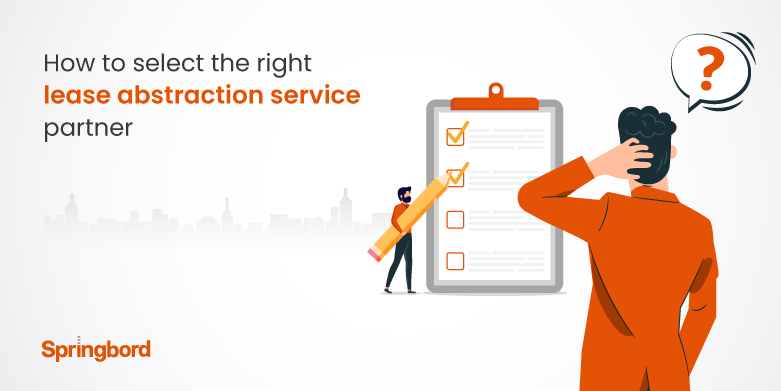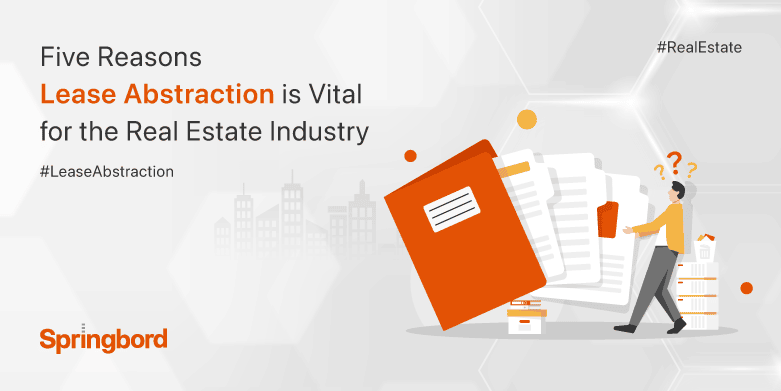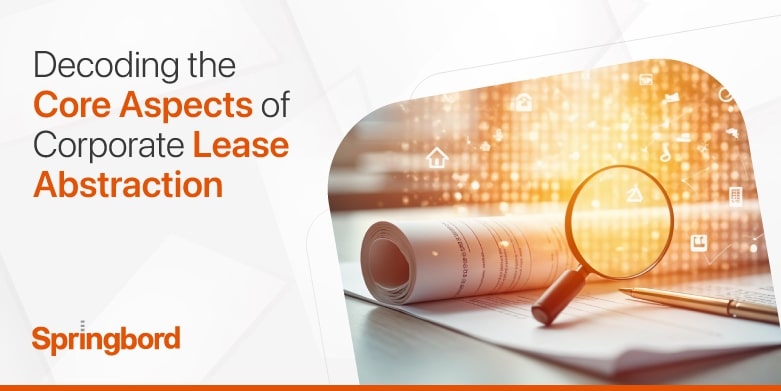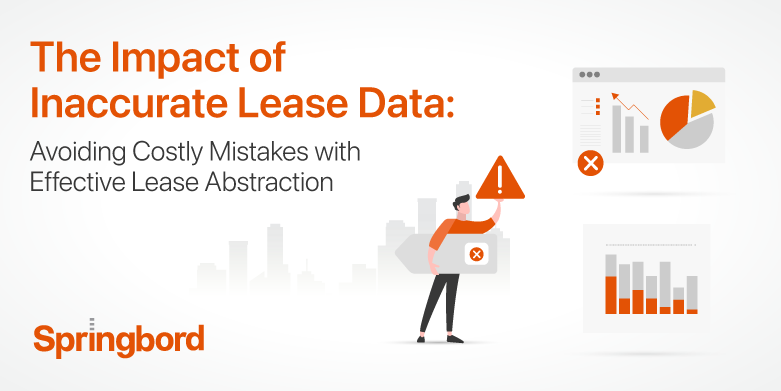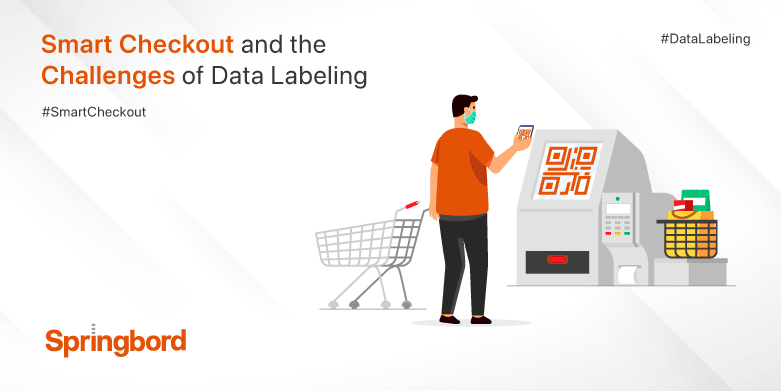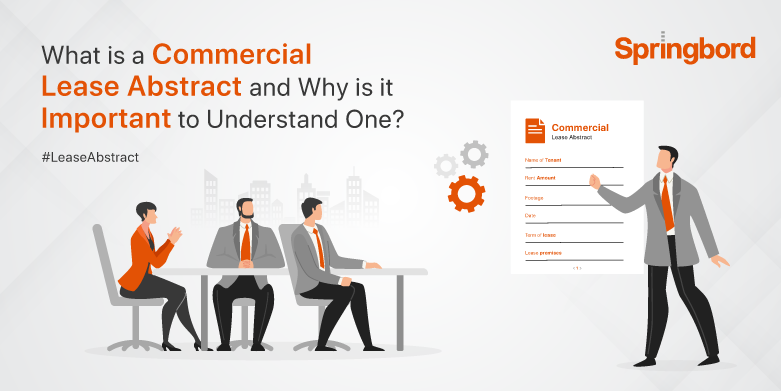Managing commercial leases is more complex than ever with new regulations and shifting market demands. Without the right tools, businesses risk falling behind. The commercial real estate industry is slowly gaining its strength back. As per a recent survey, 55% of commercial tenants are looking at prioritizing long-term leases (5years and more), while 65% of
Whether it is lease management, lease accounting or common area maintenance (CAM) reconciliation, one thing that is crucial in order to efficiently manage these processes is access to accurate and relevant lease data. Accurate data helps ensure compliance, provides insight into cost-saving opportunities, and supports better decision-making. The ability to easily extract this data from
Lease management can be a complex and time-consuming task for businesses of all sizes. From tracking lease agreements to managing rental payments and ensuring compliance, the process often involves numerous challenges. At Springbord, we understand the importance of streamlining lease management to enhance efficiency and reduce the risk of errors. In this article, we will
Lease management can be a complex and time-consuming task, often involving numerous documents, calculations, and interactions with tenants. Traditional manual methods not only drain valuable resources but also increase the risk of errors, legal complications, and missed opportunities. To overcome these challenges and ensure a seamless leasing process, it is essential to adopt best practices
Although lease abstraction makes lease management easier, the extraction process is time-consuming and requires a thorough analysis of documents and an in-depth knowledge of finance leases. The Significance of Lease Abstraction for Real Estate Businesses The real estate market relies heavily on lease abstraction, a service that summarises key provisions of a lease agreement into
In the fast-paced world of corporate real estate, leases can quickly become a complicated mix of detailed terms, financial responsibilities, and legal requirements. Managing these complexities is not just tricky for business owners; it’s essential for success. This is where corporate lease abstraction becomes invaluable, simplifying lengthy agreements into clear and practical summaries. But what
Lease abstraction is a fundamental process in the real estate industry, providing a concise summary of vital lease terms, clauses, and relevant data extracted through the lease abstraction process from original lease contracts. It greatly facilitates the review, assessment, and execution of leases for property managers and landlords. While lease abstraction simplifies lease management, the
In the world of business operations, maintaining accurate lease data is important. Lease data encompasses a variety of crucial information including rent schedules, renewal options, termination clauses, and more. Any inaccuracies in this data can lead to significant financial, legal, and operational challenges. This blog explores the importance of accurate lease data and how effective
A lease abstract is a summary of the key terms and conditions of a commercial lease. This includes information such as the lease term, rent, security deposit, and any other important details. Lease abstracts are used to quickly and easily understand the key elements of a lease, and are often used by landlords, property managers,
Agreements for commercial leases are often long and difficult to understand. It can be time-consuming and challenging to extract important information from a lease. An abstract of a lease is a condensed, easy-to-read version of the full lease. It also organizes the original, lengthy lease paperwork for quick and easy reference. A commercial lease abstract


